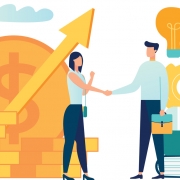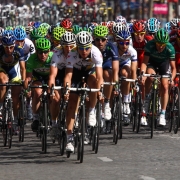Economists are strange. Their science is supposedly about how we human beings interact in the economic sphere of our lives – working, providing service to others, buying and selling and exchanging in the marketplace, saving and investing, sharing information and communicating in general. We humans make the decisions that are implicit in all those activities based on our subjective individual values, and our decisions are tinged with emotions, often idiosyncratic and not necessarily consistent. How we feel determines what we do.
From those ingredients, economists insist on making mathematical models, populating charts and graphs and computerizing functions they call demand schedules and utility functions. Huh?
When the scenarios and predictions from this math go awry, they tend to blame the human being whom they treat as subjects in their experiments, or, worse still, as “consumers”, as if we did not have any other useful purpose.
Sometimes they insult us. For example, Arnold Kling accuses us of tribalism, which he defines as “hostile and suspicious toward people who are unfamiliar”. In economics, that’s so absurd. The entire economic system rests on collaboration with people we don’t know. When you buy a package of Triscuits or a jug of Tide at the supermarket, you are collaborating with untold thousands – farmers and growers, makers of chemicals, manufacturers and people who make the machines that make the products, truckers, loaders and unloaders, shelf-stockers and checkout clerks and accountants and marketers. They all want you to have a good experience, to have your needs met and to come back again and again. Hostile and suspicious? Hardly.
Here are a few attributes of we humans in the economic realm that economists should think of as primary.
We are collaborative.
Economic tribalism just does not exist. A boat owner in Miami can collaborate with the economic community of Alibaba to find a replacement part, by searching through all the relevant manufacturers in China, checking specs and part numbers, making a purchase and triggering the supply chain that brings the part from China to the US mainland to the purchaser’s boat at dockside, with guaranteed quality (or money refunded) and three-day delivery and low cost. It’s not that the boat owner is collaborating with Jack Ma personally, but collaboration – the co-operative effort to go to great lengths to meet the customer’s exact need at low cost and high speed responsiveness – is the built-in norm. There is trust and positive expectation built in to the entire exchange process. This condition is general and widespread today. Economists talk about individuals pursuing their own self-interest, but, in fact, their interest is in making the system work, and making sure their own contribution to it meets the standard of their customers (or employers), so that they get suitably rewarded. We all want to build up trust and a good reputation. We want to be liked and respected and tribalism and pure self-interest is not going to take us there.
We act on our moral values.
Economists treat us as what they term “maximizers”. They believe we strive for as much income and wealth as we can, pushing others out of the way to get them. They think we want to consume as much as we can, as conspicuously as we can. They tell us our self-respect comes from success at these behaviors and that we are envious of those who accumulate more than us and disdainful of those who don’t. These, they believe, are our motivations.
Does anyone you know behave like that, or think like that? In fact, the opposite is generally the case. People make their decisions based on the values they hold most dear. Those might be family values related to happiness, health and economic security. Or they may be the achievement ethics of hard work and duty. Or they may be broader values regarding helping others, or even saving the world through charity and conservation. All the economic choices people make are shaped by their values. Hostility and suspicion are not part of the economic calculus.
On Econtalk recently, Russ Roberts (with a nod to Jeremy Bentham) cited as economic motivators, among other things, the pleasure of being on good terms with others; the pleasures of a good name, the desire for distinction; the desire to be admired; and Adam Smith’s locution that we desire “not only to be loved, but to be lovely”. At least Dr. Roberts’ thinking is right.
We like to work.
Another term of economics is “disutility of work”, by which economists mean to say that we humans don’t like work and will do everything we can to avoid it. Yet from the time we were children doing our homework, we knew the opposite to be the case. All our incentives, both economic and cultural, not to mention the goading of our parents, are clearly in favor of work. We love to work. It’s dignified, even noble; it generates rewards, both financial and psychic. The profit motive drives us, and it profits us to work.
We Do Best In A Self-Governing System.
Economists are generally in favor of government regulation and government intervention in the economic activities of citizens. They think of the economy as a machine and themselves as the Ph. D. engineers best qualified to manage and maintain it.
But we are not cogs in the machine. We are collaborative, values-driven, hard working individuals. As human beings, we evolved, as Darwin discovered, to the biological supremacy we are in today. Many more biological systems exhibit this energy of spontaneous order, evolving to high degrees of benefit for all members. The economy is a similar biological system. The system-level outcomes of our interactions along vectors of subjective values, individual market exchanges, emotions and idiosyncrasies are impossible to predict and futile to try to plan. The energy at the core of our dynamic economic system is competition, which is a process of discovery: finding out which people and which processes can serve others best with the highest quality and lowest prices. We do not know in advance which individuals are going to do best in this competition. As F.A. Hayek put it (in Law, Legislation and Liberty Vol 3)
“Indeed, competition is of value precisely because it constitutes a discovery procedure which we would not need if we could predict its results.” The economist’s “artificially constructed models ….are interesting only in the instances where he cannot test them because he does not possess that knowledge that he would need.”
All planning, all economic legislation, and all hierarchical ordering of the process of entrepreneurial competition are impositions that can only restrict the dynamics and limit the good outcomes of the value-creating process.
Economics Is Life.
The principles of economics point us towards the good life, well-lived. It’s only economists who fail to understand this.











